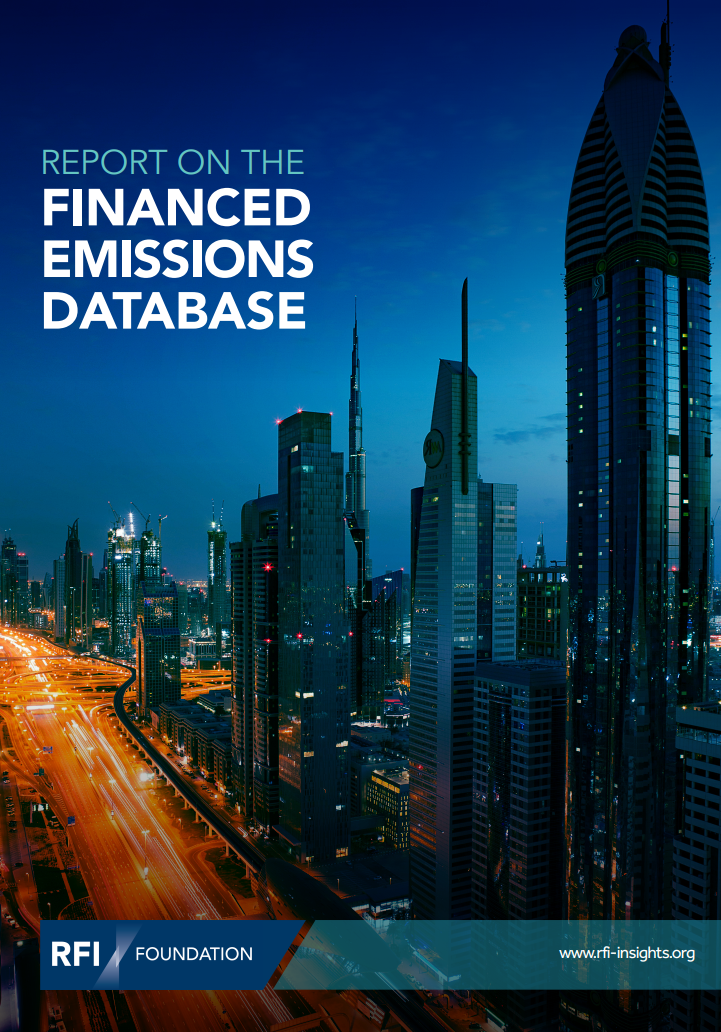Report on the RFI Insights Financed Emissions Database
By Blake Goud and Dr. Eman Tabet
Summary
This report aggregates the analysis of climate-related financial risks across 11 emerging countries (GCC, Malaysia, Indonesia, Türkiye, Pakistan, Bangladesh) and introduces use cases of the RFI Insights Financed Emissions database. The report offers a top-down analysis of the major sources of direct and indirect emissions across economic sectors. By providing a broader understanding of these interlinkages, it offers valuable insights into each country's financial sector's progress towards a low-carbon economy.
Financial market stakeholders are continuously trying to adapt their policies to navigate through rapidly evolving expectations as they seek to mitigate climate risks. The ability to mitigate financed climate risks is only as good as the accuracy of their estimates for a particular financial institution’s climate financial risk exposure, and the depth of their understanding of the interlinkages between its direct and indirect emissions.
The absence of a consensus on a single source for the data poses an important challenge for the financial sector, which is forced to triangulate using the available data (bottom-up and top-down GHG emissions estimates) to estimate the emissions concentrations of the economic sectors they finance, which are country-specific.
Simply reducing financing to high-emitting sectors does not equate to promoting sustainable economic growth or achieve global climate targets if the financing is transferred to other investors or financial institutions. The indirect emissions linked to lower-emitting sectors are comprised largely of the direct emissions of transportation, waste and electricity. Financial institutions seeking to mitigate transition risks need to proactively support decarbonization across all sectors.
The concentrations of direct emissions vary between countries, and the concentrations of indirect emissions vary considerably more, highlighting the diverse opportunities for banks and investors in Islamic markets. While reducing financing for high-emitting sectors is crucial, non-high-emitting sectors also play a significant role in the journey towards a low-carbon economy, especially those with high indirect emission dependence.
The report highlights some of the use-cases for the RFI Insights database where it can complement that analysis already begun using different tools. Financial stakeholders can use the database to gain an understanding of climate risk interlinkages and use these data as they set their key priorities to move towards their decarbonization targets including Net Zero.
Additionally, the report presents a series of recommendations tailored to different stakeholders:
Banks: Develop comprehensive and accurate climate data by comparing existing sources with other data sources to validate carbon footprint data and identify areas for improvement.
Asset Managers: Engage in country and region-wide focused discussions with their management about direct and indirect emission concentration and the climate risk concentration in their portfolio.
Asset Owners: Benefit from estimates provided by the database to compare data from different sources, embed it into investment and management evaluations, and engage in discussions with a focus on direct and indirect emission concentrations and climate risk concentrations in portfolios.
Regulators & Central Banks: Ensure consistency between economy-wide initiatives and climate-related policies, incentivize green investments, and transition financing, and encourage comprehensive climate disclosures.
Climate-focused NGOs: Bridge national targets and stakeholders' interests by advocating for transparency and disclosures, holding financial institutions accountable, and promoting climate-related initiatives through engagement with governments and regulatory bodies.
Download the report (EN)
When you click “Download”, you will receive a copy of the report. If you clicked the box to subscribe to our email newsletter, you will be added to our mailing list. You can easily unsubscribe at any time using the unsubscribe link included with every newsletter. See our privacy policy for more information.
The report is also available in Arabic.

